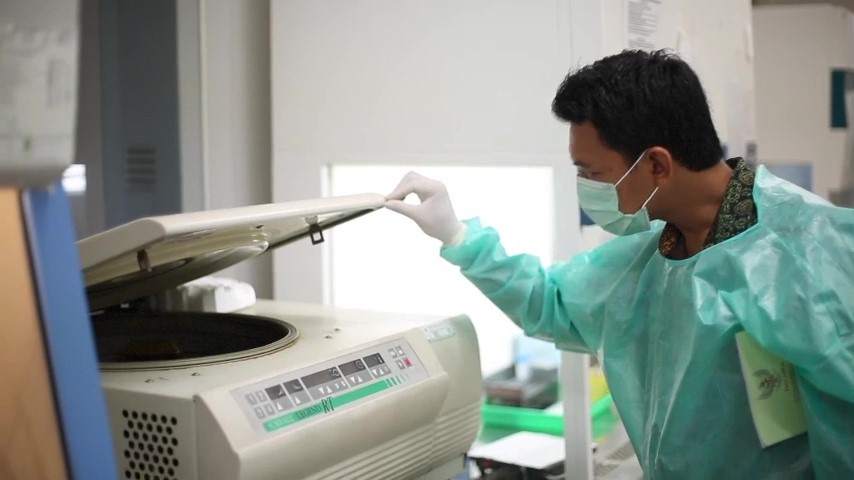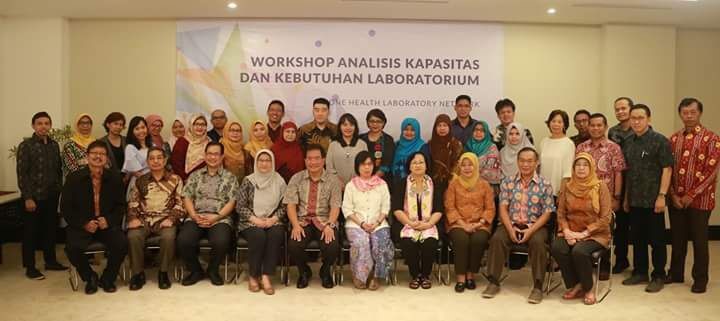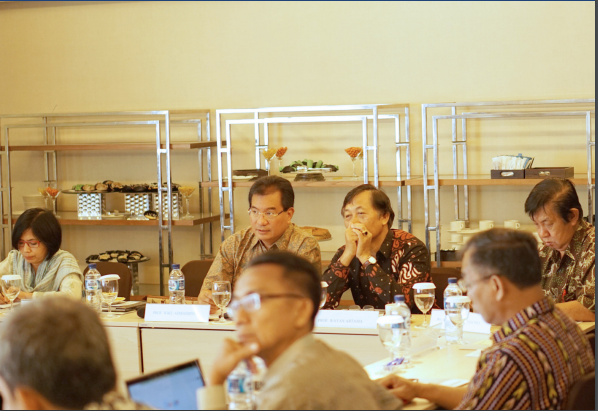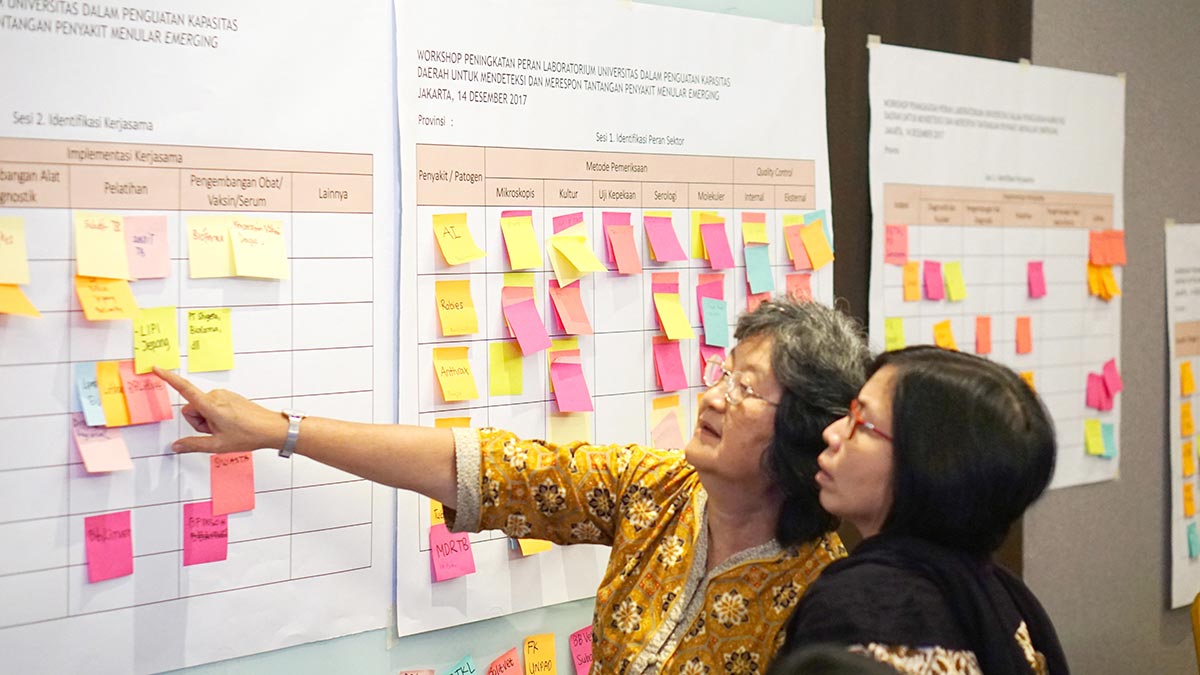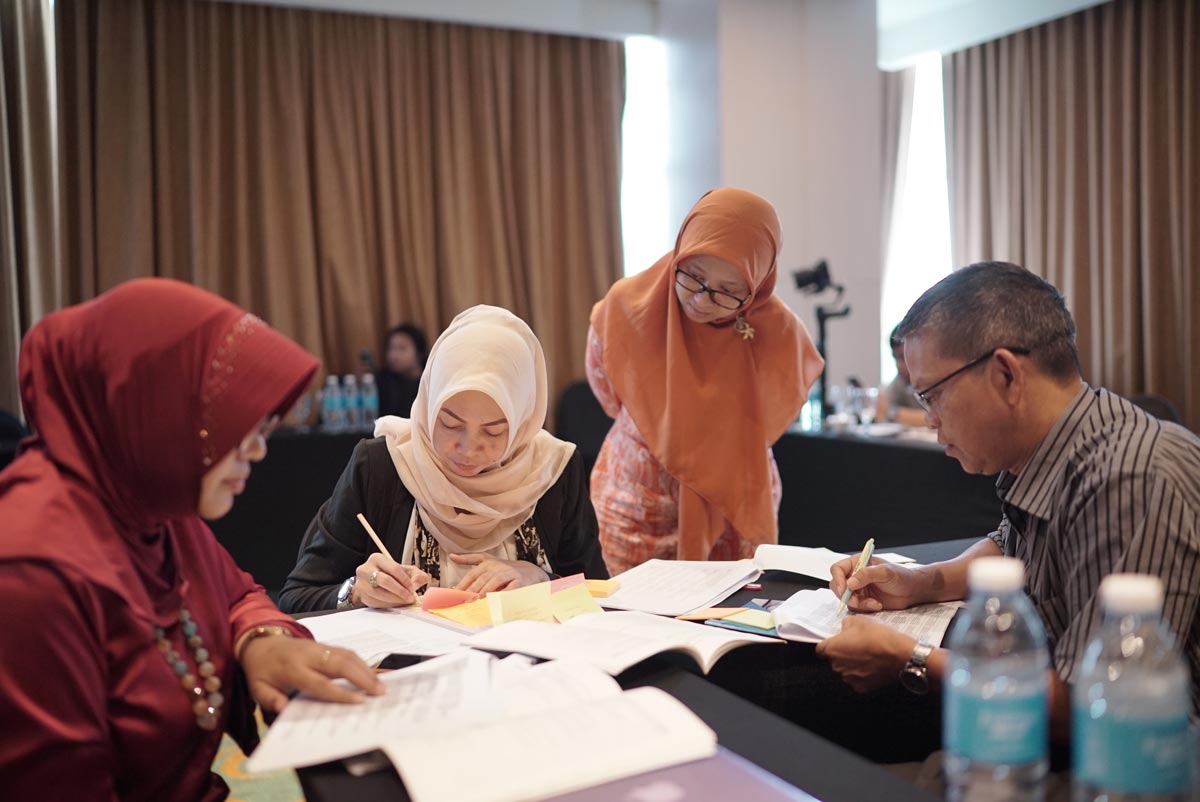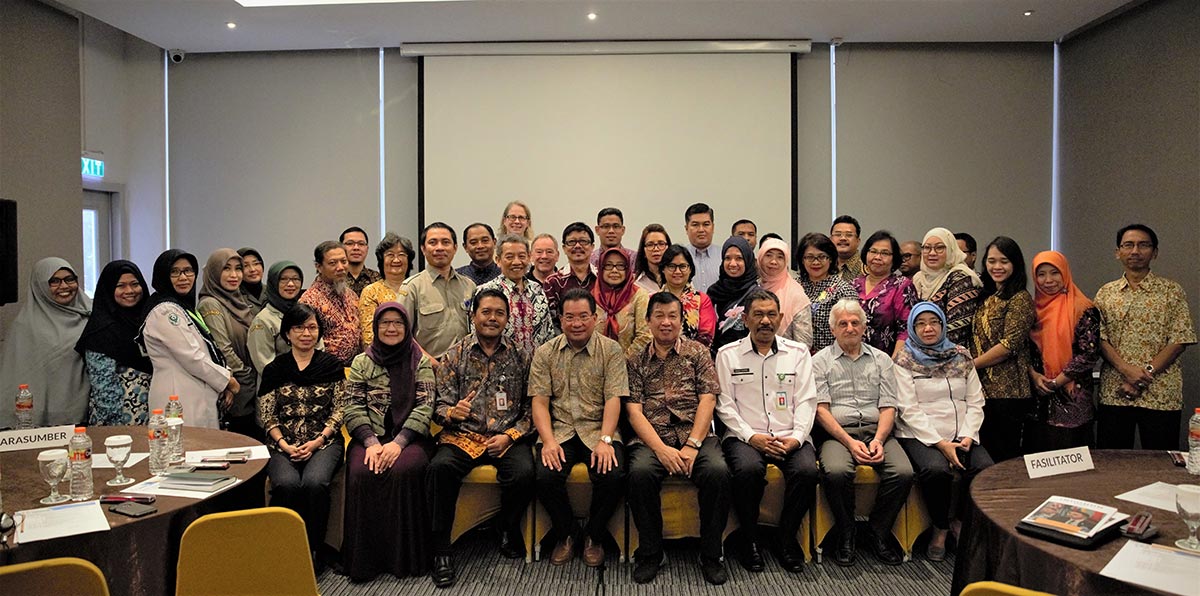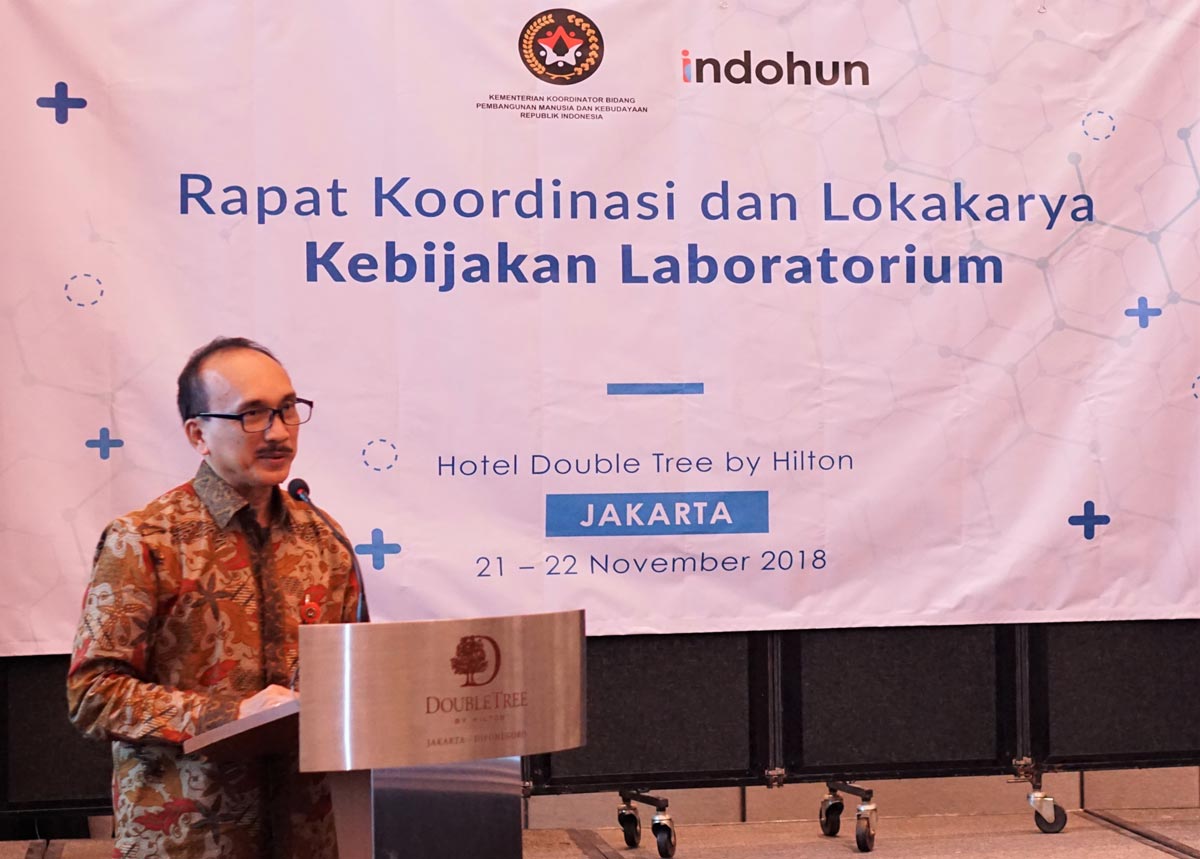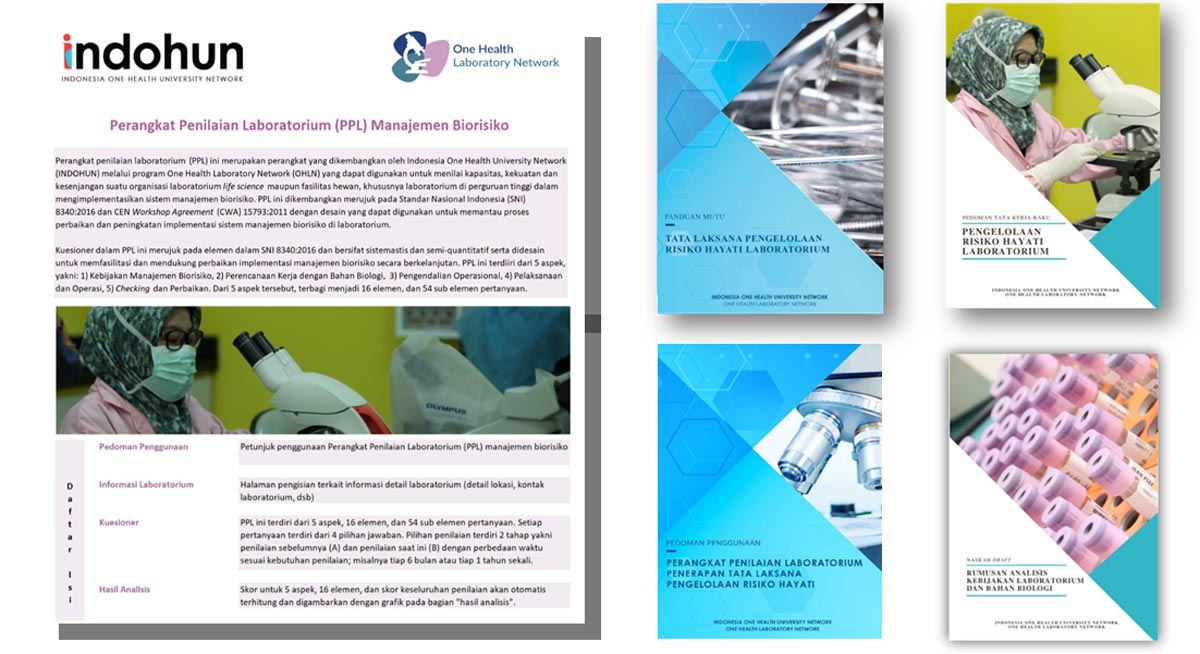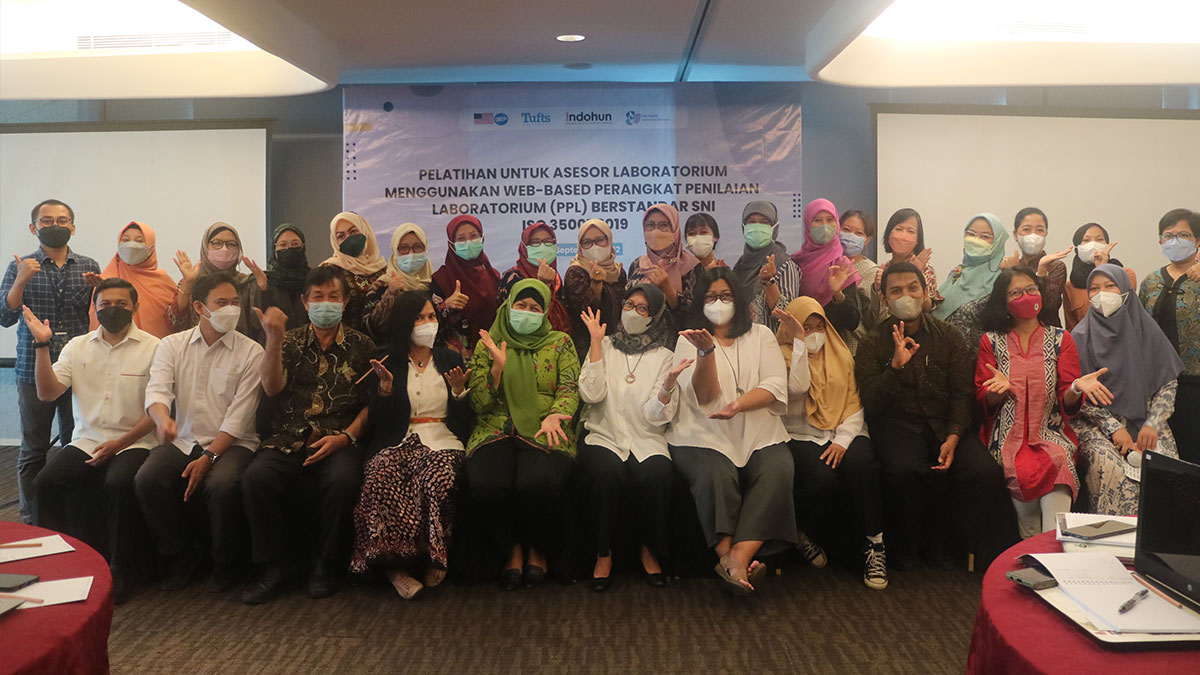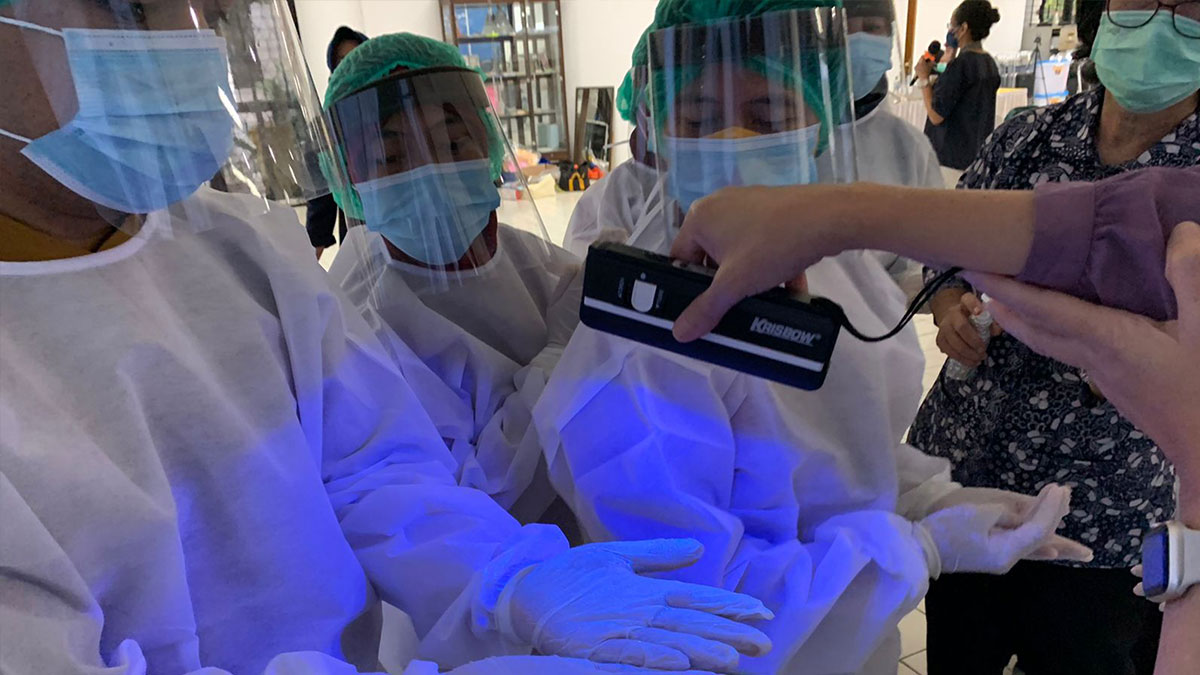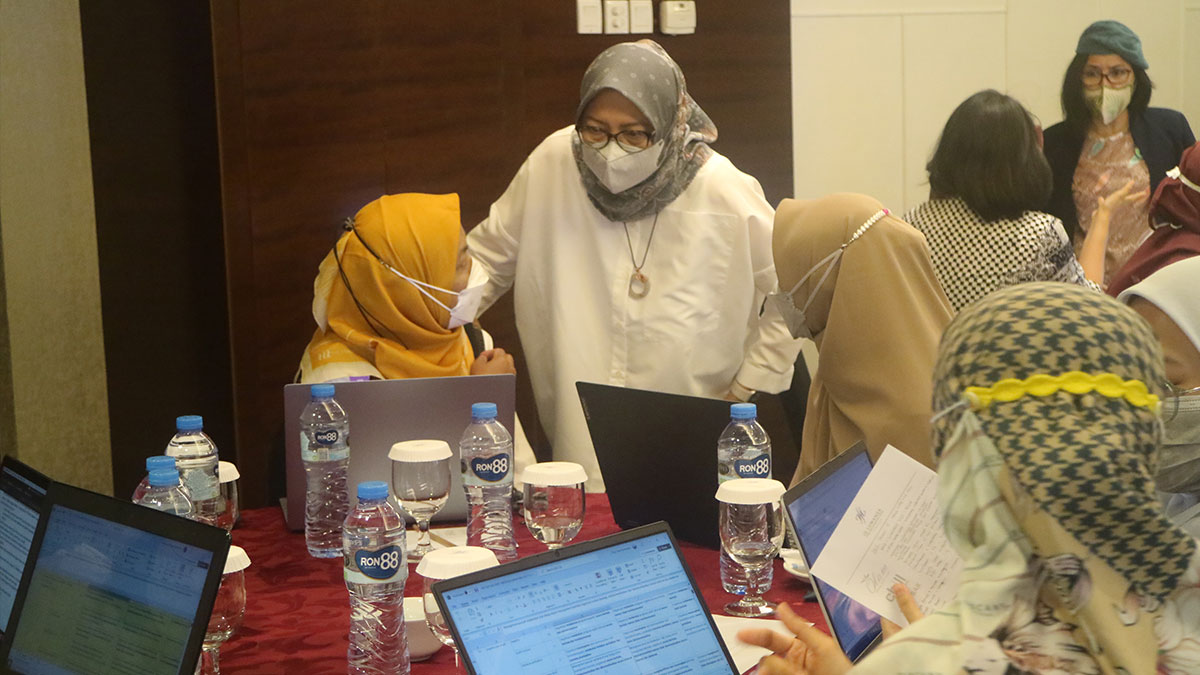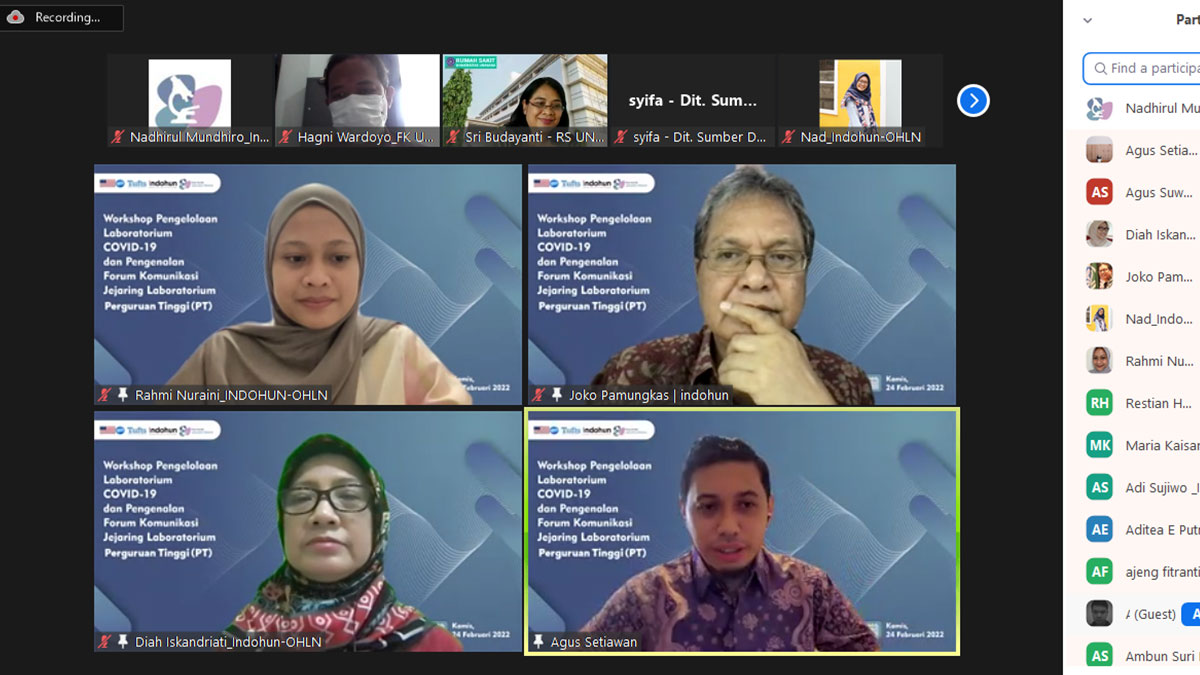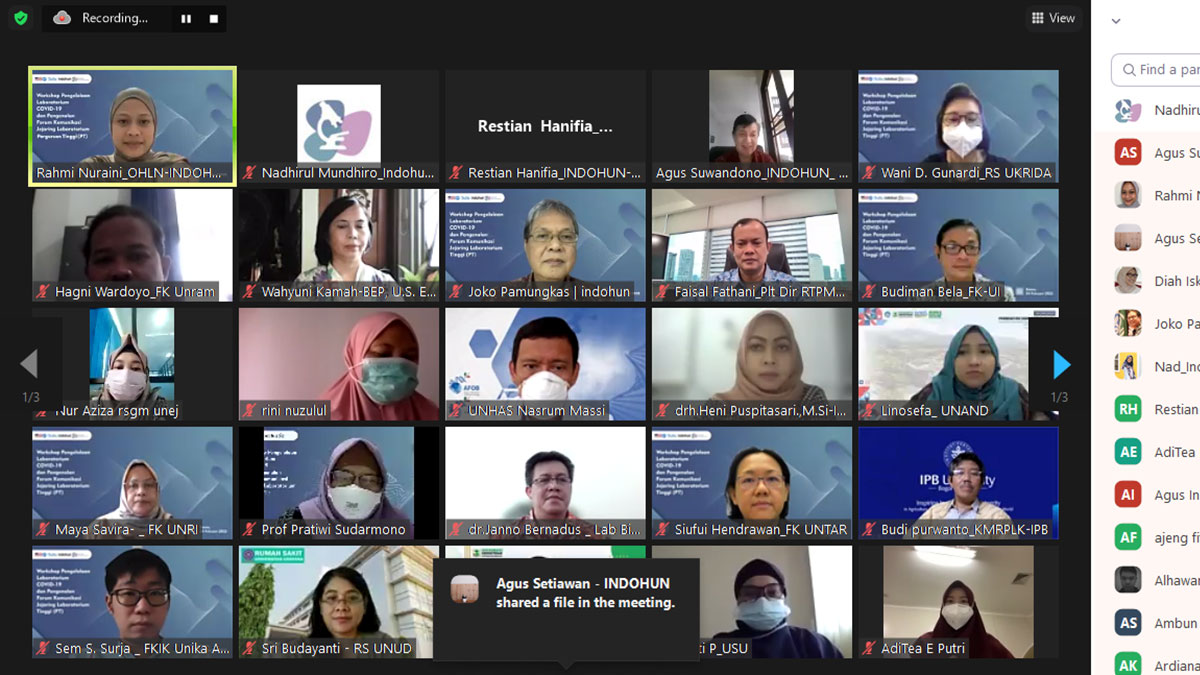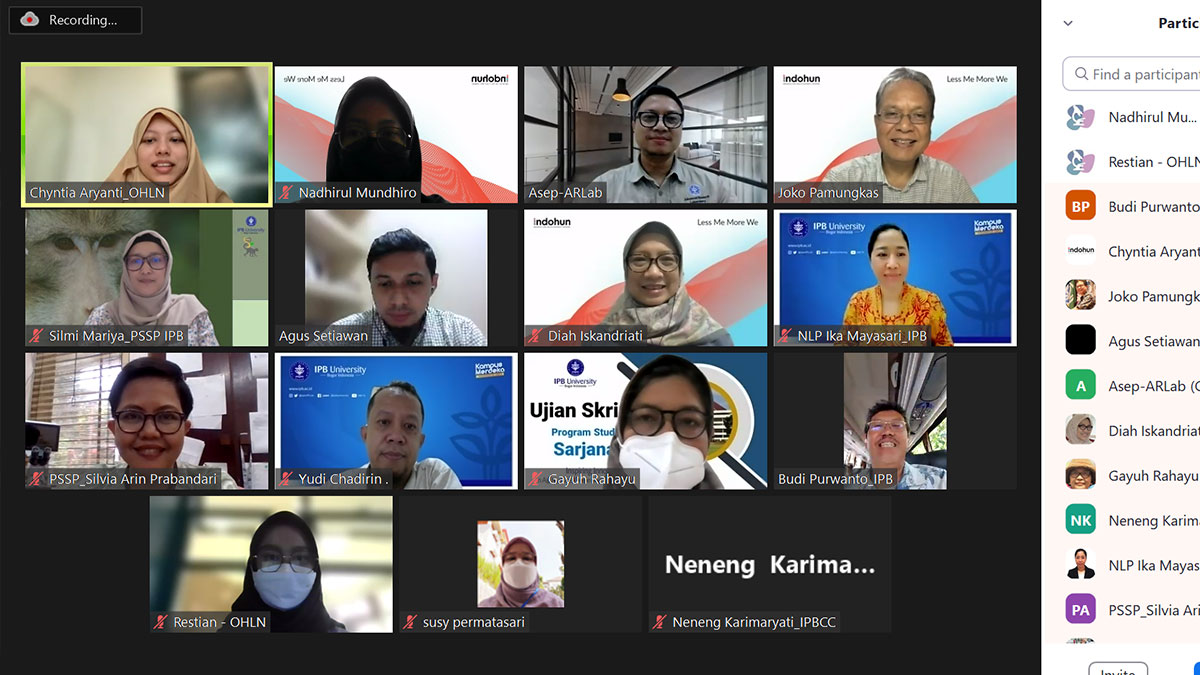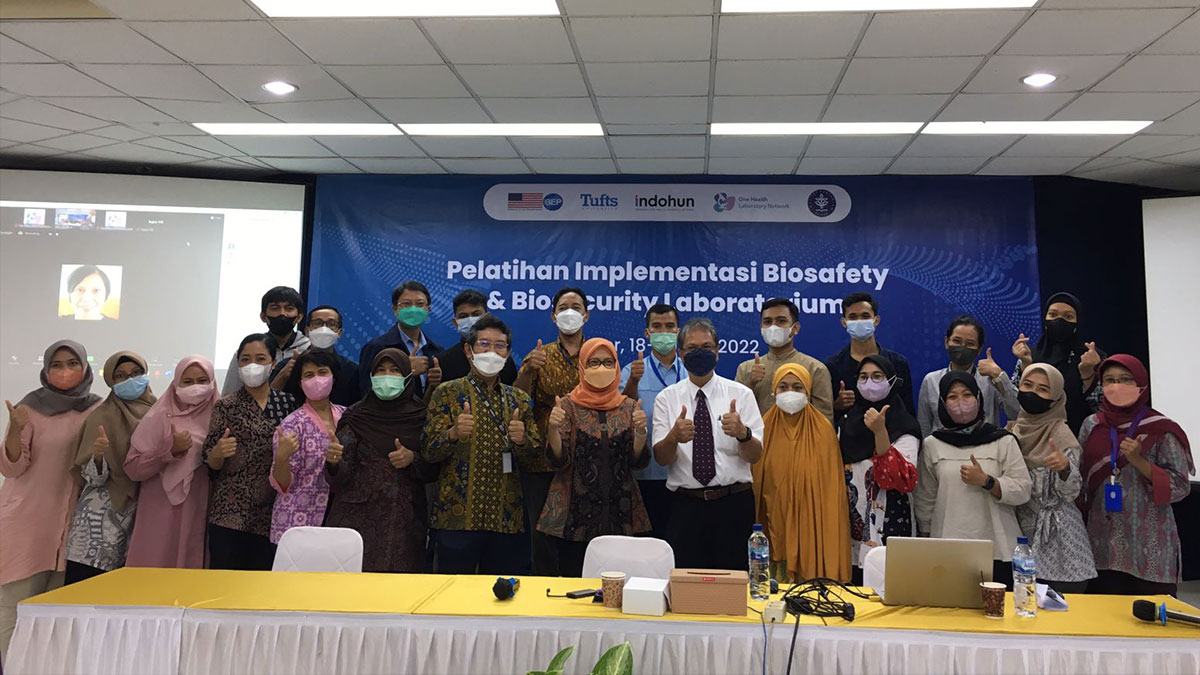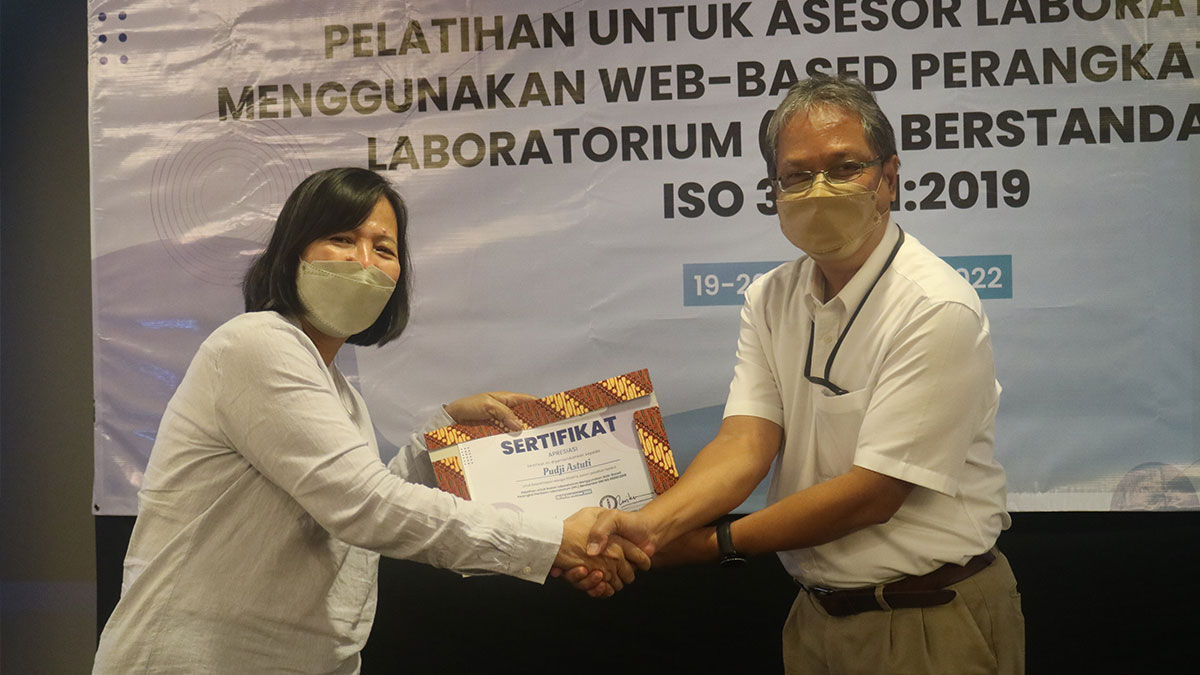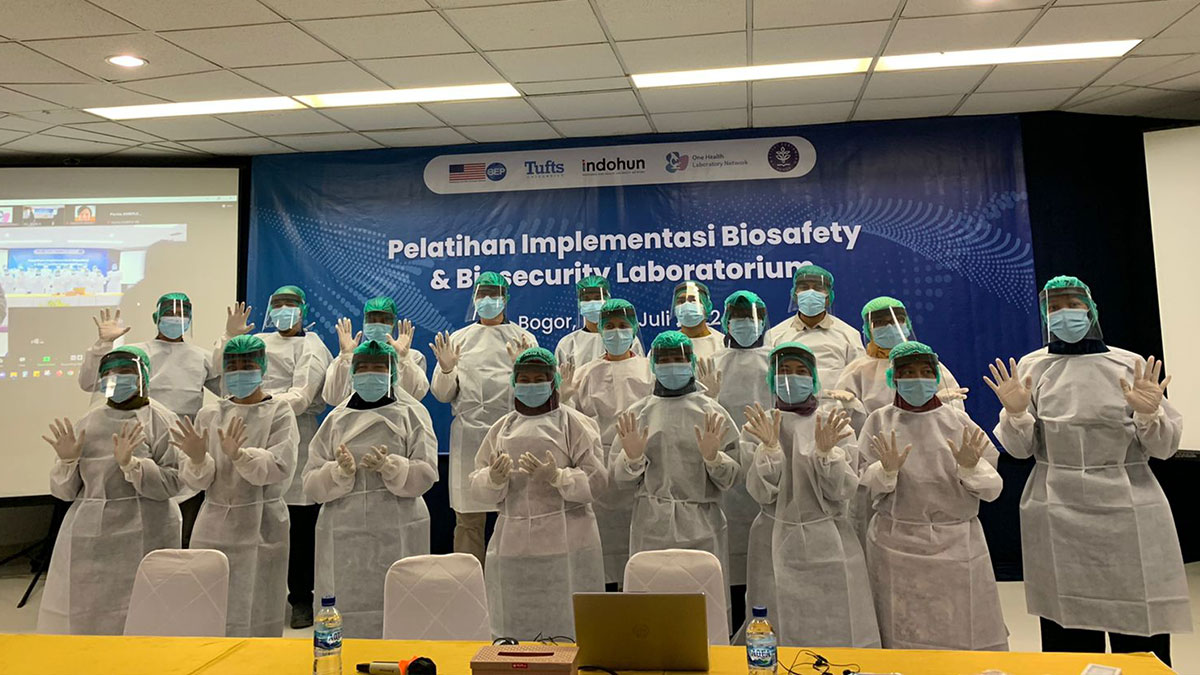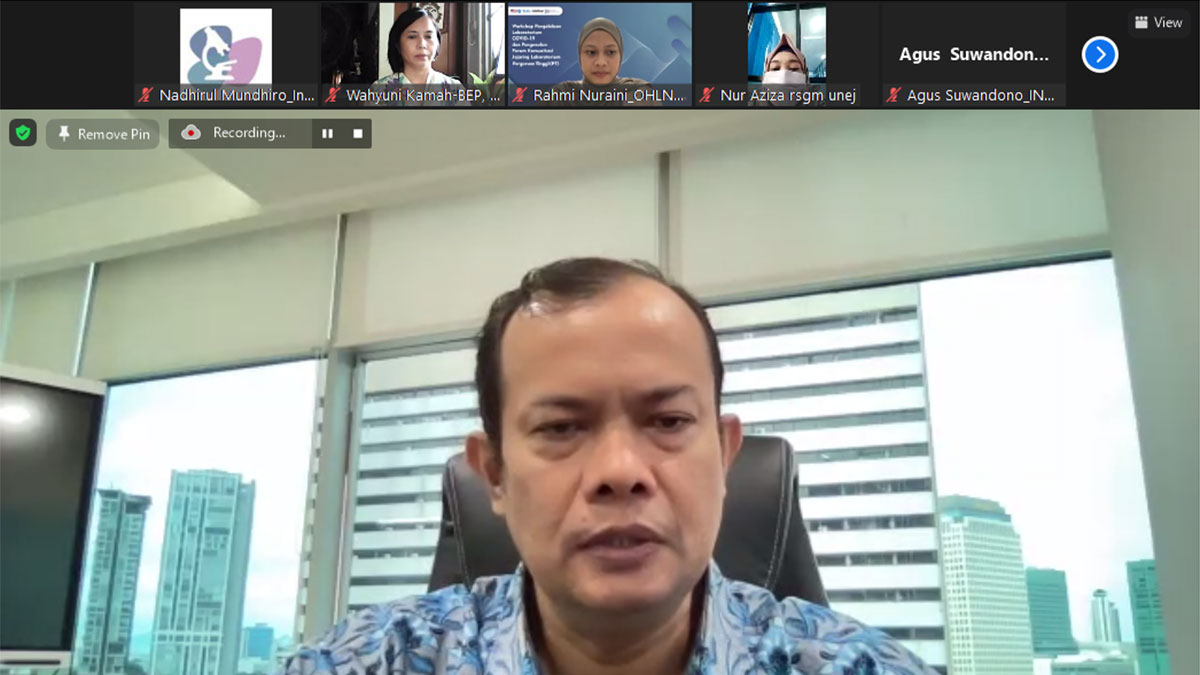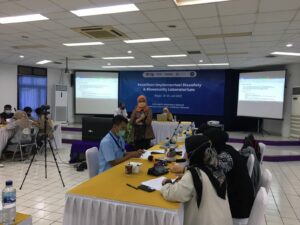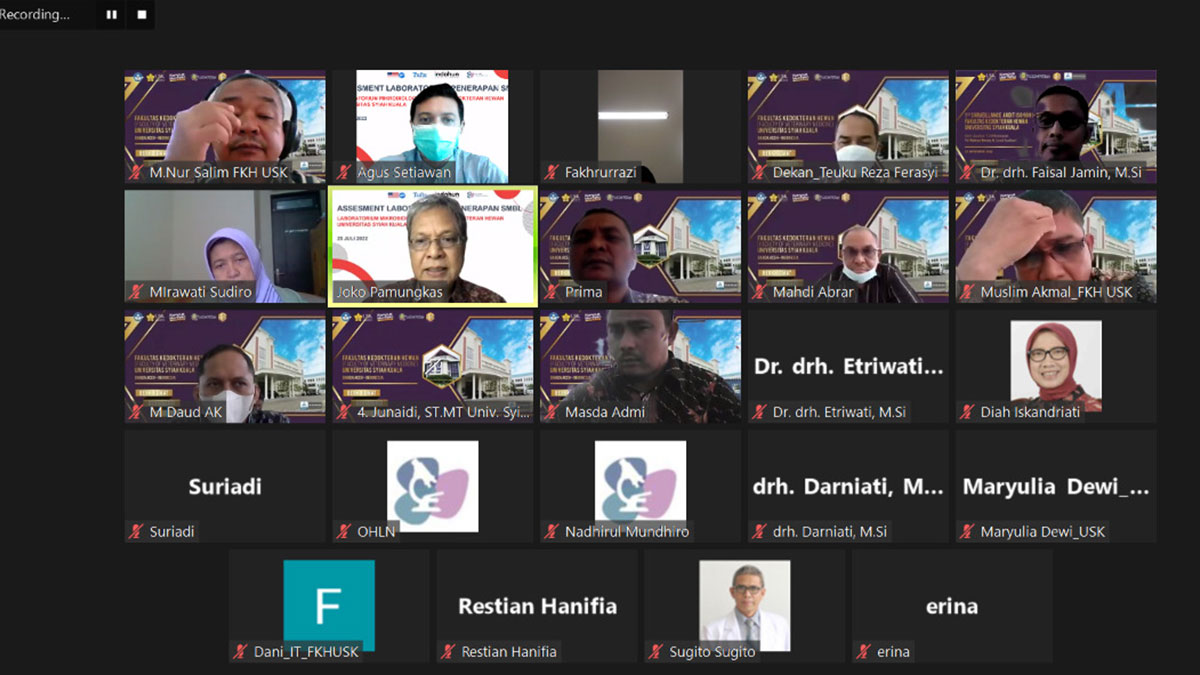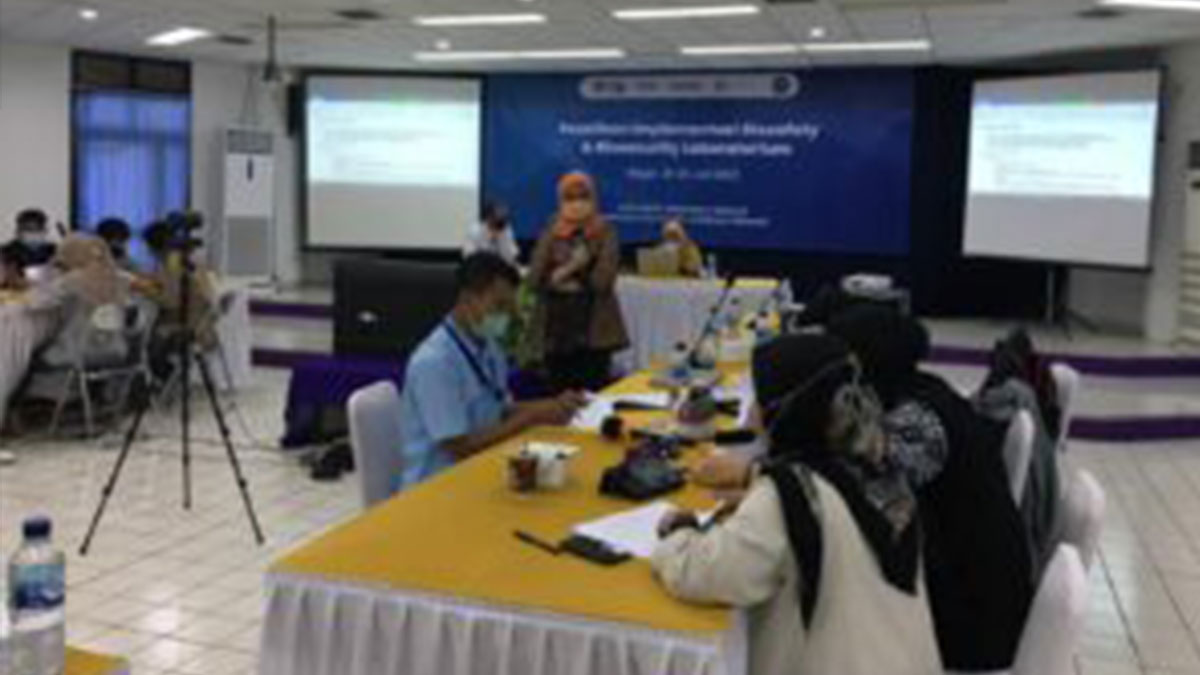US BEP – Tufts University
ACCOMPLISHMENTS
US BEP - Tufts University
Year 1
Project: Promoting Secure, Safe and Effective Disease Control
Year of Implementation: 2017-2018
Project Summary
With the support of U.S Biosecurity Engagement Program (BEP), INDOHUN is collaborating with Tufts University to help establish and strengthen the One Health Laboratory Network (OHLN) in 2017. The project is expected to link university laboratory through national policy on One Health Laboratory Network. Under the coordination of Government of Indonesia, OHLN supports the rapid identification of zoonotic diseases emerging among human and animal populations, and to prevent the spread of infectious disease. INDOHUN is start the project by establishing the network among university laboratories with the following activities:
- Setting up working groups of OHLN.
- Desktop assessment to potential university laboratories members.
- Assessment visit to selected university laboratories members.
- Workshop: Identification of current capacities, needs and resources analysis for current OH laboratory network members.
- Promoting the development and implementation of national and international laboratory guidelines (QA, QMS, BRM).
- In-service laboratory training on Good Clinical Laboratory Practice and Basic Biosafety and Biosecurity.
- Workshop with Government of Indonesia: Identify EID and Zoonotic regional disease priority and regional laboratory (MoH, MoA, University) capacity.
Achievements
Membership
- 34 University Laboratories Assessed for membership
- 12 University Laboratories Visited & become OHLN member
- Signed 6 memorandum of understanding (MoU) and 9 cooperation agreement with university and faculty leader on OHLN member
Capacity Building
- 25 University Laboratory personnels trained on Good Clinical Laboratory Practice (GCLP).
- 20 University Laboratory personnels trained on Basic Biosafety & Biosecurity
Laboratory Network Coordination
- 20 Regional Priority Disease Identified (Zoonotic, EID, AMR)
- Identified 4 regional laboratory (university and government) capacity in detecting and prevent EID and Zoonotic Disease EID and zoonotic diseases.
Factsheet: https://bit.ly/FactsheetTufts1
Report: https://bit.ly/ReportTufts1
Donor and Implementing Partner
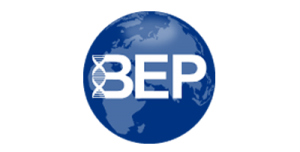

Year 2
Project: Establishing and Linking University and Government Laboratories to Implement Biorisk Management
Year of Implementation: 2018-2019
Project Summary
With the support of Biosecurity Engagement Program (BEP), INDOHUN is working with Tufts University and CRDF Global to help establish and strengthen OHLN and link university and government laboratories.
This initiatives are expected to support the Government of Indonesia (GOI) and relevant authorities in the establishment of nationwide surveillance and control strategies, and to share resources.
The network also upgraded biosafety and biosecurity practices and laboratory standards of those most in need, and institute supplemental training of personnel through workshops, lab meetings, and refresher courses.
Program Highlight in 2018 – 2019 :
- Initiate the development of laboratory network and biorisk management national regulation concept.
- Initiate the establishment of national biosecurity and biodefense unit concept.
- Consolidate the laboratory member, and develop laboratory network information system.
- Developing laboratory assessment tool for biorisk management and conducting laboratory biorisk management mapping.
- In-service training for laboratory personnel on biorisk management professional certification.
- Strengthening the implementation of university laboratory biorisk management system by developing rector regulation and decree.
- Developing biorisk management technical guideline, SOP and module.
Achievements
Membership
- 64 University Laboratories Assessed for biorisk management implementation.
Capacity Building
- 20 University laboratory personnels trained on professional biosafety & biosecurity
- 20 University laboratory personnels took the professional biorisk management professional test from IFBA, Canada
- 20 Laboratory personnels from MoH, MoA, University, and MoFMA trained on Biorisk Management and LAT auditor
- 9 University laboratory personnels trained on biorisk management gap analysis
Policy Advocacy
- 3 Rector Regulation concerning university biorisk management implementation
- 3 Rector Decree concerning University Institutional Biorisk Committee
- 3 Rector Decree concerning University Biosafety Officer (BSO)
- Ministerial Regulation (MoRHE) draft concerning University Infrastructure Quality Management System Guideline
- Ministerial decree (MorHE) draft draft concerning University Infrastructure Standard
- National policy concept of multi-sectoral laboratory network, biorisk management, and microorganism/biological material use policy
Guideline Development & LAT Trial – Assessment
- 5 Documents:
- Biorisk management quality assurance guideline
- Biorisk management Standard Operational Procedure (SOP) template
- Laboratory Assessment Tool (LAT) for biorisk management implementation gaps analysis
- LAT Guideline
- Biorisk management module
- 3 Institutions:
- Institute of Human Virology and Cancer Biology, Faculty of Medicine, Universitas Indonesia
- Primate Research Centre, IPB University
- Environmental Laboratory (BBTKL PP) Yogyakarta, DG. P2P, Ministry of Health
Factshseet: https://bit.ly/FactsheetTufts2
Report: https://bit.ly/ReportTufts2
Donor and Implementing Partner



Year 3
Project: Improving Biosecurity in Indonesia One Health Laboratory Network
Year of Implementation: 2020-2021
Project Summary
Promoting laboratory biosecurity and biosafety in One Health context means we have to hold onto values that come from One Health as well.
After the implementation of several programs since 2017, several initiatives need to be continued and pushed forward, especially in strengthening the capability of university-based laboratory members in applying the biorisk management regulation that has been developed during Y2.
In addition, the continuation of advocacy activity to central government was the main concern during Y3 to escalate the effort of biorisk management implementation based on Global Health Security Agenda (GHSA), Joint External Evaluation (JEE) results, and Indonesia National Action Plan for Health Security (NAPHS) 2020 – 2024.
Developed Strategies of OHLN Year 3:
- Promoting the establishment of OHLN and biorisk management national system and policy concept
- Initiate the establishment of university laboratory information system
- Promoting and strengthening selected university to implement institutional laboratory biorisk management
- In-service training: Professional biorisk management
Achievements
LAT Improvement
- Migration of Laboratory Assessment Tool (LAT) for biorisk management to web-based platform
- Developing new advance LAT questionnaire based on ISO SNI 35001:2019
- Virtual assessment in 2 university-based laboratory:
- Udayana University Hospital
- Microbiology Department, Faculty of Medicine University Indonesia
Guideline Development
- Laboratory Quality Management System (LQMS)
- Biorisk management system implementation: ISO SNI 35001:2019
Capacity Building
- Online training: Sampling collection, management, and improving capacity on diagnostic testing (In collaborating with trance4 project)
Webinar
- The implementation of ISO SNI 35001:2019 biorisk management system
- Laboratory Assessment Tool (LAT) Launching
Factsheet: https://bit.ly/FactsheetTufts2
Report: https://bit.ly/ReportTufts3
Donor and Implementing Partner


Year 4
Project: Improving Biosecurity in Indonesia through the One Health Lab Network
Year of Implementation: 2021-2022
Project Summary
With the support of U.S Biosecurity Engagement Program (BEP), INDOHUN is collaborating with Tufts University to support the implementation of a laboratory biorisk management system (SMBL) through the One Health Laboratory Network (OHLN) program in university laboratories to improve security and safety in the handling of biological materials during identification and detection of emerging infectious diseases (PIE) and zoonoses.
Program Highlight in OHLN Year 4 is Promoting the implementation of institutional laboratory biorisk management to selected university Labs, In-Service Training, OHLN member strengthening.
Achievements
Membership
- Created a platform and organized a Social Network Web Advocacy activity for the Higher Education Laboratory Network Communication Forum and 48 institutions already have accounts.
- Successfully established the MoU with Directorate General of Higher Education, Research and Technology, MoECRT per 28 July 2022.
Capacity Building
- 62 Participants from 51 laboratories at the university took part in the COVID-19 Laboratory Management Workshop and Introduction to the Higher Education Laboratory Network Communication Forum.
- 35 participants from 26 universities took part in laboratory biorisk management system training in handling and testing covid-19 and other dangerous pathogen samples.
- The Central Laboratory for Primate Animal Studies, Advanced Research, Faculty of Veterinary Medicine, and IPB Culture Collection participated in training on the implementation of laboratory biosafety and biosecurity at IPB.
- 24 people from 9 institutions participated in training for laboratory assessors using web-based laboratory assessment tools standardized with SNI ISO 35001:2019
Biorisk Management Program Technical Assistance
- Assessed and Provided technical support to strengthen the implementation of the laboratory biorisk management system (SMBL) standardization for 9 target laboratories in 5 universities.
Report: https://bit.ly/ReportTufts4
Donor and Implementing Partner


